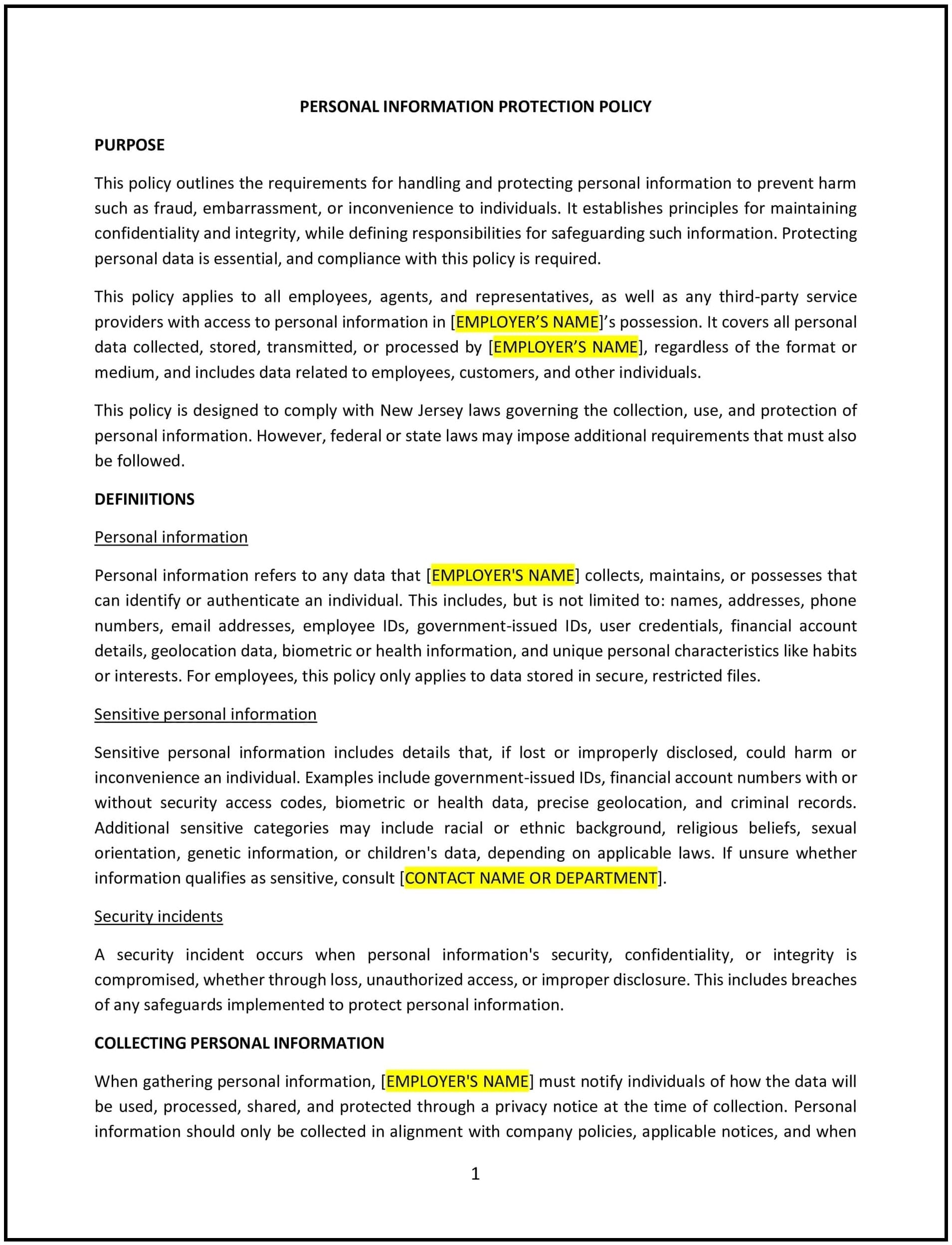Personal information protection policy (New Jersey): Free template
Got contracts to review? While you're here for policies, let Cobrief make contract review effortless—start your free review now.

Customize this template for free
Personal information protection policy (New Jersey)
A personal information protection policy helps New Jersey businesses establish guidelines for safeguarding employees', customers', and other stakeholders' personal data. This policy outlines how personal information is collected, stored, processed, shared, and disposed of in compliance with privacy laws, including the New Jersey Consumer Protection Act and the federal General Data Protection Regulation (GDPR) where applicable.
By adopting this policy, businesses in New Jersey can reduce the risk of data breaches, build trust with customers and employees, and ensure that personal data is handled responsibly.
How to use this personal information protection policy (New Jersey)
- Define personal information: Specify what constitutes personal information (e.g., names, addresses, email addresses, Social Security numbers) and how it will be protected.
- Establish data collection practices: Outline how personal information is collected, such as through online forms, transactions, or employee records, and the purpose for which it is collected.
- Implement data access controls: Limit access to personal information to only authorized personnel, ensuring that employees with access understand their responsibilities.
- Ensure secure data storage: Specify how personal data should be stored (e.g., encryption, secure servers) and set guidelines for ensuring its confidentiality.
- Set data retention and disposal guidelines: Define how long personal information will be kept and the secure methods for its disposal once it is no longer needed.
- Address third-party data sharing: Clarify when and how personal information may be shared with third-party vendors or partners, and ensure they meet privacy and security standards.
- Provide employee training: Train employees on the importance of personal data protection, recognizing risks, and following company policies.
- Review and update: Regularly assess the policy to stay compliant with evolving privacy laws and to ensure that best practices are followed.
Benefits of using this personal information protection policy (New Jersey)
This policy provides several benefits for New Jersey businesses:
- Protects customer and employee trust: Safeguards personal information, which builds confidence among stakeholders.
- Reduces risk of data breaches: Provides guidelines that minimize the risk of unauthorized access or misuse of personal data.
- Helps ensure legal compliance: Ensures that businesses are handling personal data in accordance with applicable privacy laws, reducing legal risks.
- Improves operational efficiency: Streamlines processes for managing, storing, and disposing of personal information securely.
- Enhances business reputation: Demonstrates the company’s commitment to protecting sensitive data, which can strengthen its public image.
Tips for using this personal information protection policy (New Jersey)
- Communicate the policy clearly: Ensure employees understand their role in protecting personal information and the procedures for handling sensitive data.
- Monitor data access: Regularly audit who has access to personal data to ensure it is appropriately restricted.
- Secure data storage: Use encryption and other security technologies to protect personal information from unauthorized access.
- Train employees regularly: Conduct periodic training on the importance of data protection and how to implement the policy.
- Review the policy regularly: Update the policy to reflect changes in data protection laws, business practices, and emerging security threats.